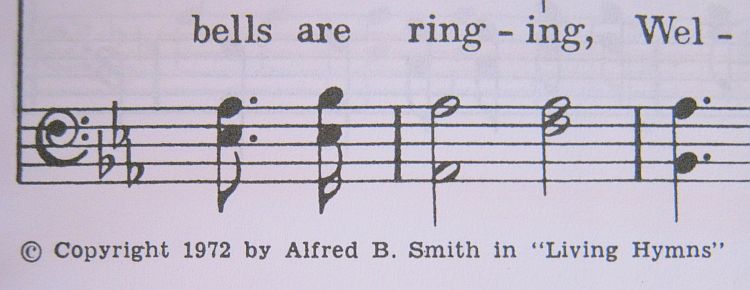Hymns & Copyright Laws: Part One
Thursday, September 5th, 2013You’ve probably seen a comment on my site somewhere along the way that read something like this… “Sorry I can’t create an arrangement of (whatever hymn title) because it’s still under copyright law.”
How to know if a hymn is still under copyright? Open a hymnal to any hymn and look at the bottom of the page. You will be looking for the symbol © or the word “copyright” with a year.
Copyrighted hymns fall into two categories: Hymns written before 1978 and Hymns written after 1978. I’ll cover the first category of copyrighted hymns in this article.
A. Copyrighted hymns written before January 1, 1978
To make a long story short…Copyrighted hymns published before 1978 are “automatically protected from the moment of its creation for the author’s life plus an additional 70 years after the author’s death.”
So…what’s so important about knowing this information? Misuse of someone’s copyrighted song without their permission (such as: making photocopies, creating a recording of the song for profit or non-profit use) is a form of stealing and therefore a federal offense.
Disclaimer: The information shared in this article is not intended as legal advice; but rather to enlighten the reader.
Click here for more information
